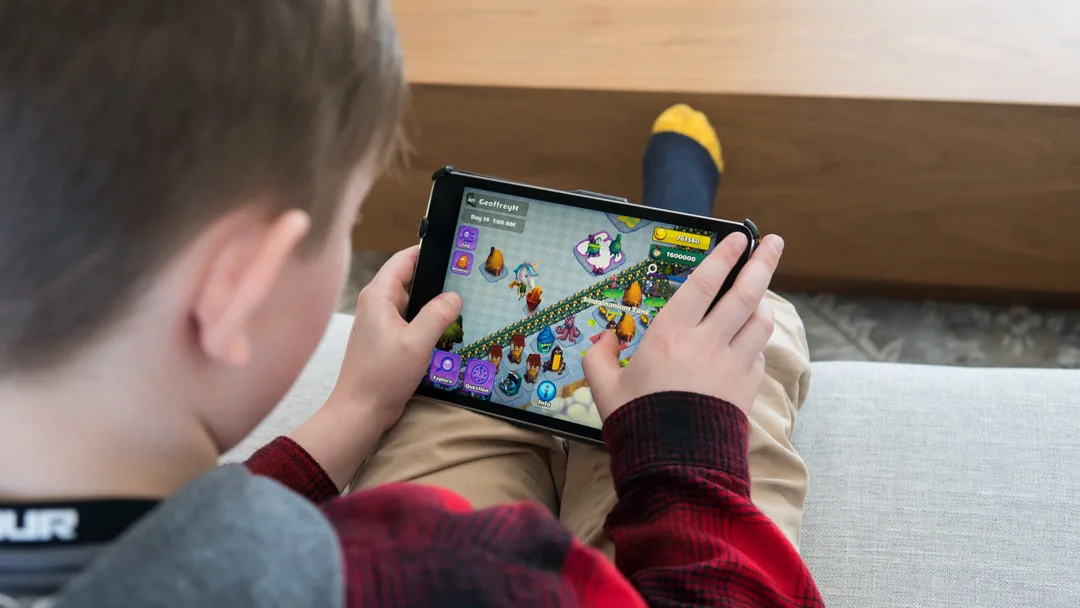
Leveraging mobile gaming to enhance literacy learning
Fund Updates · Dec 5, 2022
With four kids from ages seven to twenty, Julia Rivard Dexter has always strived to find a balance between running her business and being engaged in her children’s education. When she learned that her nine-year-old son was falling behind in reading skills and would have a difficult time catching up to his peers, she was shocked. “It was an eye-opening experience for me to realize that I needed to be involved and own his success as much as the school and his teachers,” she says.
Julia knew she had to take action.
Julia discovered how discouraging many learning applications were for children. In the US, reading scores have been declining steadily for years. The pandemic further
exacerbated
the trend, where only one in three students met proficiency standards according to the latest National Assessment of Educational Progress exams. These effects are further compounded into adulthood - about half of Canadian adults
struggle with literacy. At the same time, Julia noticed that her kids were always highly captivated by video games because of the intriguing content and user experience - which is not surprising given the average child plays three hours of video games per day
.Recognizing this as an opportunity to reinvent her children’s learning experience and “help a whole generation of kids develop the skills and confidence to become successful readers,” Julia took initiative.
Julia is a former Olympic Kayaker, recognized as one of Canada’s Inspiring 50 Women in STEM, serving on the National
Digital Industries Economic Strategy Table
. With a background in leading successful technology ventures including as CEO of SheepDogInc.ca, Google’s first North American premier Apps partner, plus her passion for literacy, she dove deep into the sector launching the Shoelace Learning
Platform in 2019.Shoelace is an innovative learning platform engineered to deliver the best research-based and personalized learning through mobile games kids want to play. Their first video-game Dreamscape, designed for children in grades 3-8, is a highly engaging mobile game that strategically uses the game triggers to effectively improve the players’ literacy skills. Additionally, Shoelace provides teachers with the ability to send customized or pre-made assignments to students through their game. The platform is able to utilize data from the players’ responses to generate insights into how they are learning, enabling Shoelace to continuously refine and personalize the student’s learning pathway. As a result of this comprehensive offering, Shoelace has industry-leading engagement metrics, with players reading six times more than their peers because of the motivation provided by the game.

One of the core goals of Shoelace is providing every child with access to effective learning resources, which is why Shoelace was the perfect fit to join the TELUS Pollinator Fund’s portfolio. Through their freemium business model, Shoelace ensures that all kids, no matter their socioeconomic background, have free access to the learning platform. Their commitment to ensuring that effective learning opportunities are highly accessible to all, aligns with the TELUS Pollinator Fund’s focus on creating more inclusive communities through education.
Currently, Shoelace serves over five million players in 160 countries across the world. With plans to release their second game in 2022, and two more games before 2025, the Pollinator team is investing in Shoelace to support their goals of scaling up and expanding to new audiences across North America.
In the future, Julia also sees an opportunity for the learning engine to be integrated to third-party mobile game applications and further support teachers with advanced learning analytics. The Pollinator team is excited to welcome Julia and her team to the portfolio as Shoelace continues to empower the next generation of youth and educators.


